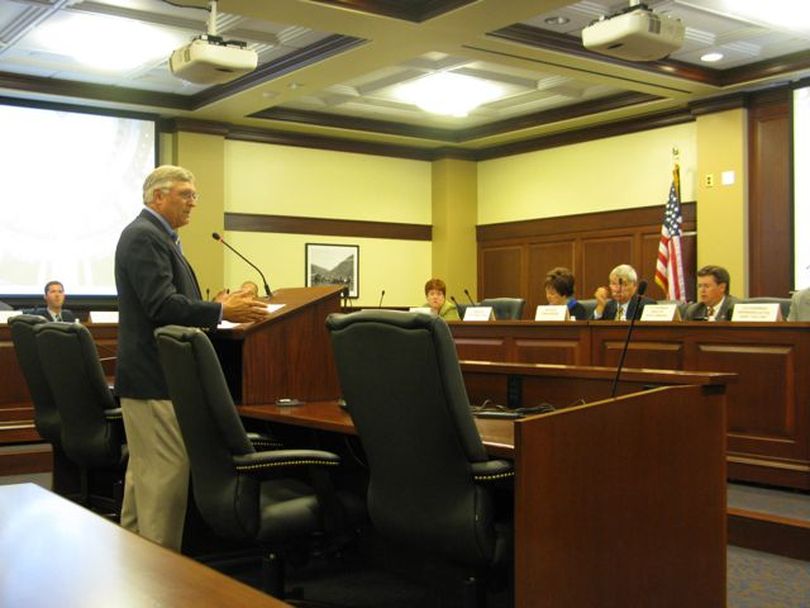Lawmakers discuss possible Medicaid expansion

The Legislature's 14-member joint Health Care Task Force is meeting all day today at the state Capitol, and first up, it heard an update from state Health & Welfare Director Dick Armstrong on the progress of the governor's working group examining a possible Medicaid expansion under the national health care reform law. Armstrong said a consultant's study that was expected to be out today has been extended to Sept. 14, "so we can get all the information we needed." He said, "It is a very good document. I've of course seen the draft a number of times. It is very neutral, it is very factual."
The population that would be included in a Medicaid expansion, he said, is made up largely of the working poor. "Sixty percent of those individuals are employed," Armstrong said. "We do know this population has chronic disease, greater than the normal population, and we know what types of ailments that they suffer from, so it's very good data."
Rep. John Rusche, D-Lewiston, noted that if Idaho doesn't expand Medicaid, it still will have "the statutory responsibility under the indigent program for care." Armstrong responded, "Yes, if we don't expand, the existing statutes will stay in place in Idaho as far as how we handle indigent care."
Sen. Joyce Broadsword, R-Sagle, said, "In my opinion we're still paying for those people whether they're going to be in the Medicaid program or not - we're either paying for them through Catastrophic Health Care plan, or through the prison system, or through hospitalization after the fact. So to me, Medicaid expansion is probably the way we need to go to make sure that we get the best outcomes." Armstrong said the study will give the state "some numbers we didn't have before," as to current costs for that population's health care and how it's being paid. "Their cost won't go away," he said. "It is a matter of how do you manage that. ... The question is what is it going to cost, and out of which pocket does it come."
Sen. Dean Cameron, R-Rupert, task force co-chairman, cautioned that the state should look at the long term costs, 10 or 20 years out, as well as the shorter term. Armstrong said it's difficult to forecast medical inflation rates that far out, and the federal government is saying it will start by paying 100 percent of the cost for the expanded population for the first three years, phasing that down to 90 percent in six years and thereafter. But he raised the possibility that sometime in the future, the federal matching rate might fall to the 70 percent the feds now pay for the rest of Idaho's Medicaid program. "What we're being told by the feds is oh, no, the 90 percent will go on forever. Well, we know forever is not forever, it's as long as somebody's in office," Armstrong said. Cameron said, "It's really easy for us to get caught up in the short-term cost savings. My fear is we'll have the short-term savings, and that will be spent in one way or another, and then 10 years, 20 years from now, not us but colleagues of us will be sitting around the table trying to figure out how to pay for this."
